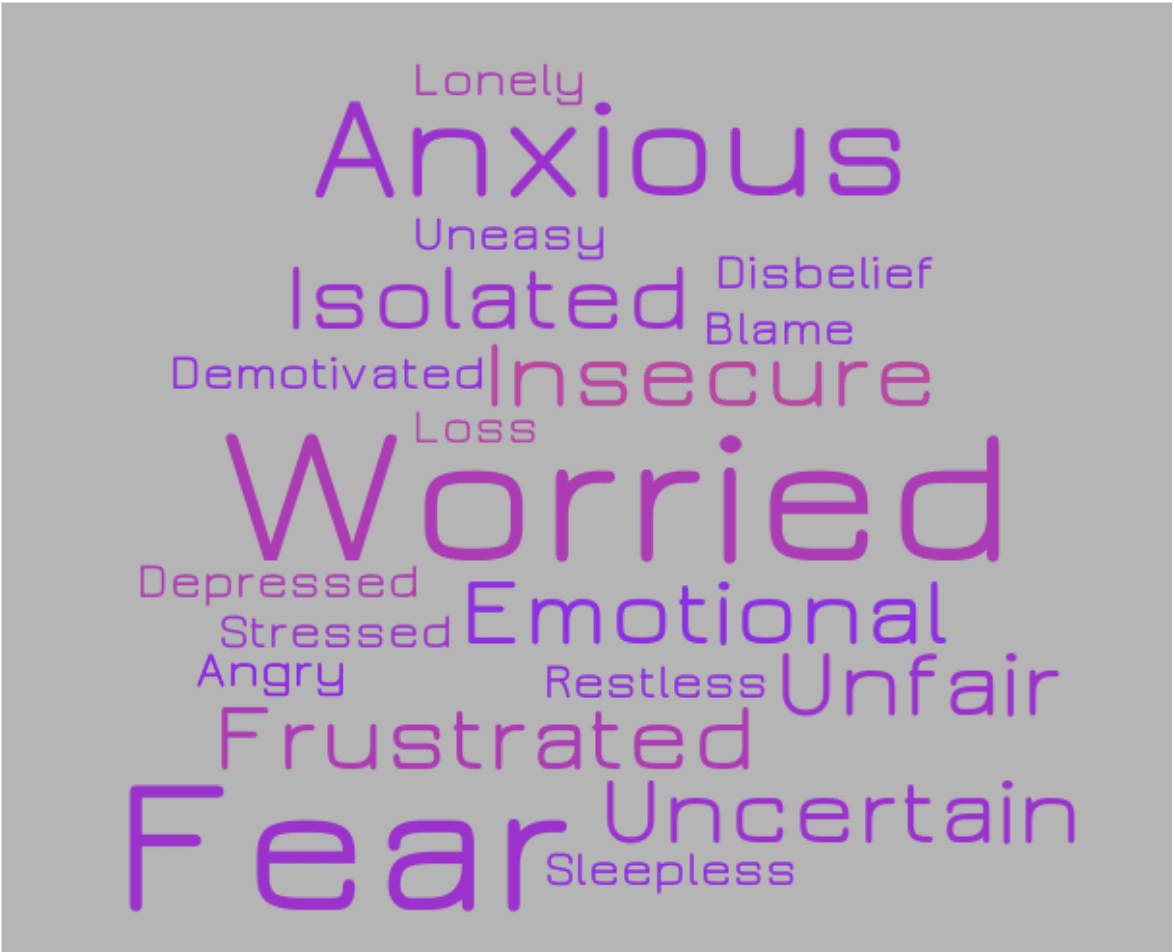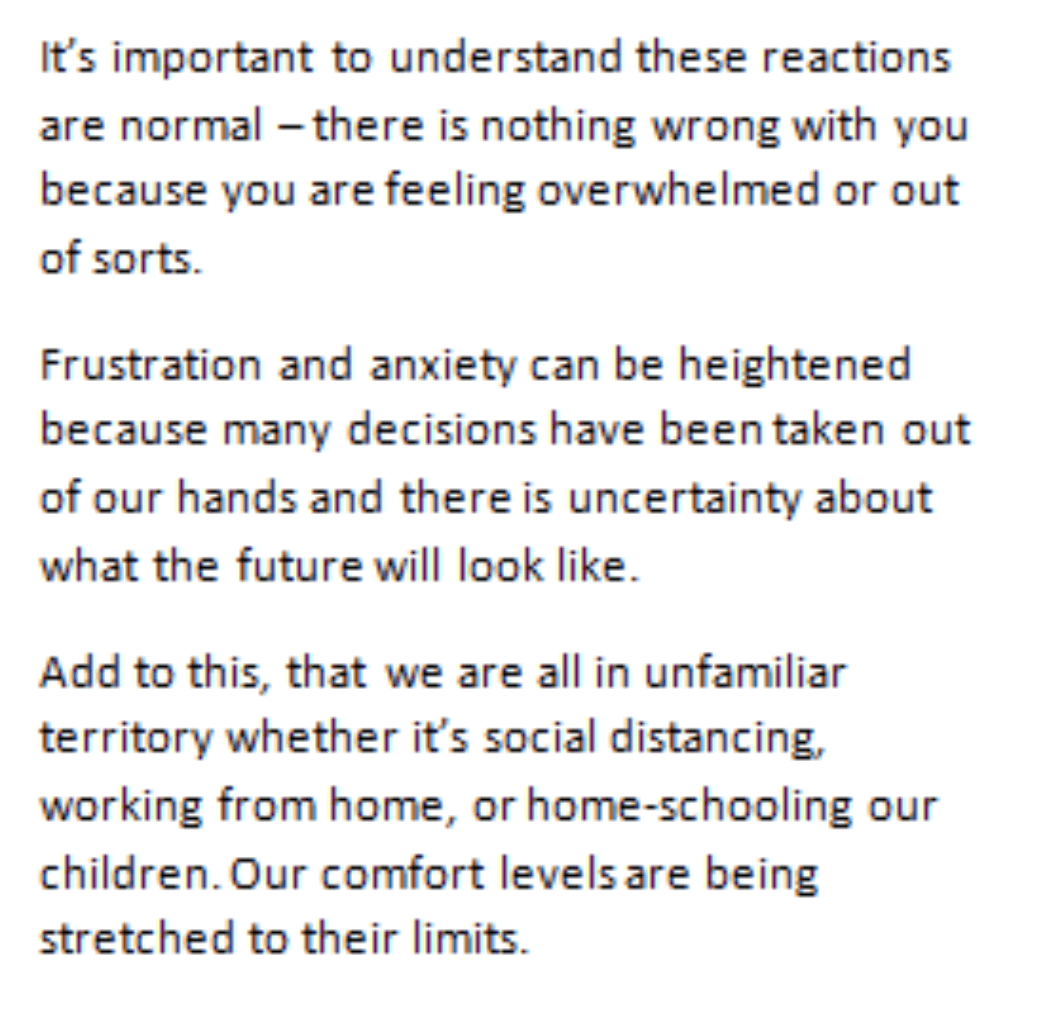Living through the current pandemic is bringing many lessons to the surface related to what we know about loss and grief.
First of all, we’re realising that loss is all around us as we are forced to adapt to changes in our daily lives. Almost nothing about our daily lives has been untouched by change – working, shopping, holidaying, schooling, socialising, exercising, visiting, communicating, hand shaking … the list is endless.
Where there is loss, there will be grief. Grief, described simply, is about the way we react to loss and change – how we think about it, how we feel about it, how we then act in response to our thoughts and feelings and how our grief affects our physical health and wellness.
In relation to the new way of life we are experiencing, people are describing their reactions using words like:


How can you help yourself?
The easiest way to get your grief off your chest is to talk to someone about it – you will probably find many people will share similar responses to your own and that you are not alone in the way you are feeling.
Writing about your thoughts and your situation can help – keeping a diary can be like confiding in a friend, you can be authentic and say whatever is on your mind and there is no judgement or criticism.
Think about limiting your exposure to the constant reporting on the media – this can add to the overwhelm as well as filling your mind with nothing but reports of death, fear and crisis. Instead, each day, you could think of, and write down, three things you are grateful for, no matter how small. This is a commonly practiced technique to promote positivity and a healthy mind.
There are many helpful online resources, especially those which help you to learn mindfulness and meditation to quieten your mind and focus on self-help. Some include:
Remember the famous saying, ‘this too shall pass’. It may not feel like it, but things will return to normal. In the meantime, it is important to have confidence that things will improve, that people will recover, and things will get back to normal. In addition to maintaining your long-term goals, also think about things that you will do each day and week, which you can and will enjoy. Again, try and bring others into your plans; they might also benefit from thinking about the future.
(Source: mindspot.org.au)
